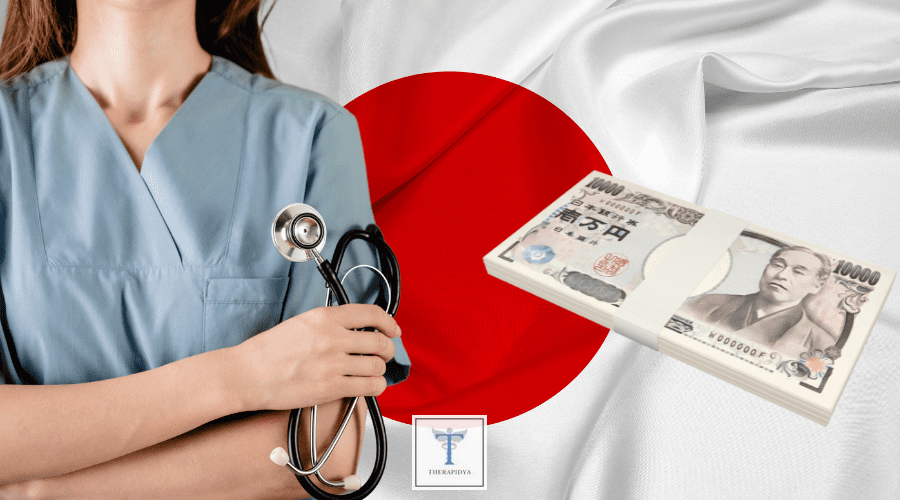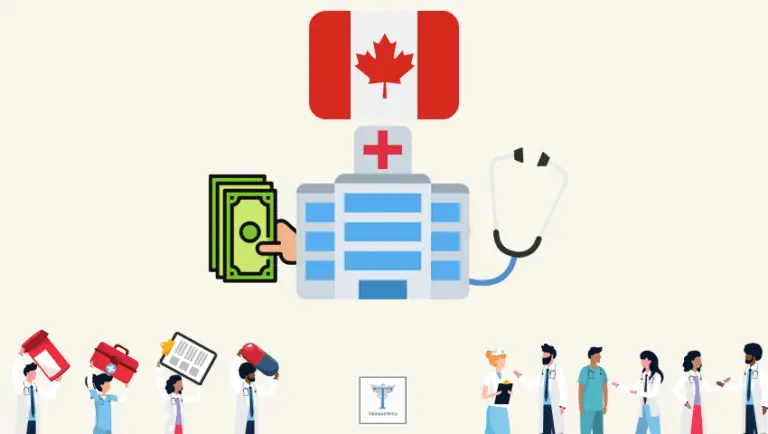Doctor Salary In Japan: A Comprehensive Guide 2023
Discover the latest insights on Doctor Salary In Japan, including average earnings, regional differences, and factors that impact compensation for healthcare professionals and students.
This article delves into the average doctor salary in Japan, regional variations, and the factors that influence these earnings. We also discuss future trends and projections that may impact the medical profession, equipping you with the knowledge needed to make informed decisions about your career in Japan’s healthcare system.

Introduction
Japan’s healthcare system is known for its efficiency and high-quality medical care. Understanding doctor salaries in Japan is essential for healthcare professionals and students who are considering a career in this East Asian nation. In this article, we will delve into the average doctor salary in Japan, with a focus on Tokyo, as well as variations in physician salaries across the country.
Average Doctor Salary in Japan
National Average Salary
The average doctor salary in Japan is approximately ¥12,000,000 per year. This figure varies depending on factors such as specialization, years of experience, and location. To put this into perspective, let’s compare Japan’s average doctor salary to other countries:
| Country | Average Doctor Salary (USD) |
|---|---|
| Japan | 110,000 |
| United States | 313,000 |
| United Kingdom | 138,000 |
| Australia | 202,000 |
| Canada | 228,000 |
Factors affecting the average salary:
- Cost of living
- Government policies
- Supply and demand for healthcare professionals
Breakdown by Specialization
Doctor salaries in Japan differ based on the medical specialty. Here is a brief overview:
- General practitioners: ¥9,500,000 – ¥12,000,000
- Surgeons: ¥15,000,000 – ¥25,000,000
- Pediatricians: ¥10,000,000 – ¥14,000,000
- Psychiatrists: ¥9,000,000 – ¥13,000,000
- Other specialties: Salaries vary widely, depending on demand and complexity
Doctor Salary in Tokyo
Comparison with the National Average
Tokyo, as the capital city of Japan, has a higher cost of living and a more competitive job market. Consequently, doctor salaries in Tokyo are generally higher than the national average:
- Average doctor salary in Tokyo: ¥14,000,000 – ¥18,000,000
Factors affecting salaries in Tokyo:
- Cost of living
- Demand for healthcare professionals
- Competition for positions
Physician Salary in Japan: Variations Across the Country
Regional Differences in Salaries
Salaries for doctors in Japan can vary significantly depending on the region:
- Urban areas: Higher salaries due to higher cost of living and increased demand
- Rural areas: Lower salaries, but lower cost of living and potential government incentives
- East vs. West Japan: Some variation, but generally more competitive in larger cities
Factors Influencing Regional Salary Differences
- Cost of living
- Patient population
- Healthcare infrastructure
Additional Factors Affecting Doctor Salaries in Japan
Apart from the regional variations and the type of specialization, several other factors influence the salaries of doctors in Japan. In this section, we will discuss these factors in detail to provide you with a comprehensive understanding of the dynamics behind doctor salaries in Japan.
A. Years of Experience
- Entry-level doctors: Fresh graduates and junior doctors typically earn a lower salary compared to their more experienced counterparts. The average starting salary for a doctor in Japan is around ¥5,000,000 per year, which gradually increases with experience.
- Mid-career doctors: Doctors with 5-10 years of experience can expect a significant jump in their salaries, often earning between ¥8,000,000 and ¥12,000,000 per year.
- Experienced doctors: Doctors with over 10 years of experience and a well-established practice can earn between ¥15,000,000 and ¥25,000,000 per year, depending on their specialization and practice settings.
B. Private Practice vs. Hospital Employment
- Hospital-employed doctors: Doctors working in hospitals, especially public ones, generally have a fixed salary structure with additional benefits such as health insurance, pension, and paid leaves. However, their salaries might be lower compared to private practitioners.
- Private practice doctors: Doctors running their private clinics or working in private hospitals typically have higher earning potential due to a higher share of consultation fees and the ability to set their own rates. However, they may have additional overhead costs and might not receive the same benefits as hospital-employed doctors.
C. Educational Background and Certifications
- Medical school: Graduates from top medical schools in Japan or prestigious international institutions may command higher starting salaries due to their educational background.
- Specialized certifications: Doctors with additional qualifications or certifications in their field of specialization (e.g., board certification) often have an edge over their peers and can negotiate higher salaries.
D. Work Hours and Overtime Pay
- Regular work hours: Doctors in Japan generally work between 40 and 50 hours per week, depending on their practice settings and specialization. Some specializations, such as emergency medicine or surgery, may require longer working hours.
- Overtime pay: Japanese doctors, like other professionals, are eligible for overtime pay. However, the rules for calculating overtime pay vary depending on the employer and the doctor’s employment status. In general, doctors working in hospitals are more likely to receive overtime pay, while those in private practice may not have a fixed overtime pay structure.
Future Trends and Projections for Doctor Salaries in Japan
As we explore the landscape of doctor salaries in Japan, it is important to consider future trends and projections that may impact the medical profession. Several factors, including an aging population, government initiatives, and technological advancements, are expected to shape the future of doctor salaries in Japan.
Impact of an Aging Population
Japan is currently facing a rapidly aging population, with a significant increase in the number of elderly citizens. This demographic shift has several implications for the healthcare sector:
- Increased demand for healthcare services: As the elderly population grows, so does the need for specialized medical care. This may result in higher demand for doctors, particularly in geriatrics and other related fields.
- Higher workload: With the increased demand for healthcare services, doctors may experience a heavier workload, leading to longer hours and potential burnout.
- Salary implications: The increased demand for doctors may result in higher salaries, as hospitals and clinics compete to attract qualified professionals.
Government Initiatives to Attract Healthcare Professionals
To address the challenges posed by the aging population, the Japanese government has implemented various initiatives aimed at attracting more healthcare professionals. Some of these measures include:
- Educational incentives: Offering scholarships and loan forgiveness programs for medical students who commit to working in underserved areas.
- Foreign medical professionals: Easing restrictions on foreign doctors practicing in Japan, thereby increasing the pool of available professionals.
- Telemedicine: Encouraging the use of telemedicine to expand access to healthcare services, particularly in rural areas.
These initiatives may contribute to a more competitive job market, potentially affecting doctor salaries in the long term.
Technological Advancements and Their Effects on the Medical Profession
Advancements in technology have the potential to revolutionize the medical profession in Japan. Some key areas of technological impact include:
- Artificial intelligence: AI has the potential to improve diagnostic accuracy, streamline administrative tasks, and aid in medical research, potentially affecting the demand for doctors and their salaries.
- Robotics: The use of robots in surgery and other medical procedures may impact the demand for specialized doctors, as well as the skillset required to succeed in the field.
- Remote patient monitoring: As technology enables doctors to monitor patients remotely, this could lead to more efficient use of resources and potentially impact salaries.
While these advancements have the potential to disrupt the medical profession, they also offer opportunities for doctors to adapt and thrive in a changing landscape.
Conclusion
Understanding doctor salaries in Japan is crucial for healthcare professionals and students as they navigate their careers. The national average salary, regional variations, and factors such as experience, specialization, and work environment all play a role in determining doctor salaries. As Japan faces an aging population and embraces technological advancements, it is essential for doctors to stay informed about future trends and adapt to the evolving medical landscape. By doing so, they can make well-informed decisions and secure rewarding careers in Japan’s healthcare system.
Resources
- Ministry of Health, Labour and Welfare (MHLW): https://www.mhlw.go.jp – The official website for the Japanese government agency responsible for health policy, labor standards, and social welfare programs.
- Japan Medical Association (JMA): https://www.med.or.jp – The largest professional medical organization in Japan, representing over 170,000 doctors and physicians.
- National Institute of Public Health (NIPH): https://www.niph.go.jp – A research institute that conducts public health research and provides scientific advice to the Japanese government.
- Japan Health Policy NOW (JHPN): http://japanhpn.org – A comprehensive resource for information on Japan’s health policies, including an overview of the healthcare system and its challenges.
- The World Health Organization (WHO) – Japan: https://www.who.int/countries/jpn – The Japan section of the WHO website, offering information on the country’s health profile, statistics, and policies.
- Japan Society for the Promotion of Science (JSPS): https://www.jsps.go.jp – An independent administrative institution that supports scientific research in Japan, including health-related research projects.
- Japan Hospital Association (JHA): https://www.hospital.or.jp – An organization representing hospitals in Japan, offering insights into the healthcare system, hospital management, and medical services.
- National Center for Global Health and Medicine (NCGM): https://www.ncgm.go.jp – A Japanese national research institution focused on global health issues and the advancement of medical sciences.
- Japan Medical Research and Development Organization (AMED): https://www.amed.go.jp – A government organization that supports medical research and development in Japan, with a focus on innovative healthcare technologies.
- Japan Pharmaceutical Manufacturers Association (JPMA): http://www.jpma.or.jp – An industry association representing pharmaceutical companies in Japan, offering information on drug development, regulations, and healthcare policy.
This post is also available in: العربية (Arabic) Dansk (Danish) Nederlands (Dutch) Français (French) Deutsch (German) עברית (Hebrew) Italiano (Italian) Polski (Polish) Română (Romanian) Русский (Russian) Türkçe (Turkish) Español (Spanish) Български (Bulgarian) Ελληνικά (Greek) Magyar (Hungarian) Português (Portuguese (Portugal))







